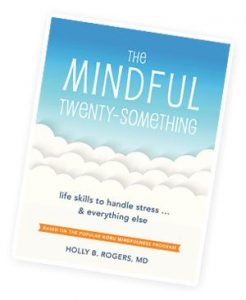
This is part 1 of our series on the traditional Eightfold Path for the cessation of suffering offered by the Buddha 2500 years ago. Missed our other posts? Read them all here.
Suffering sucks. Yet it is inevitable, right?
It’s inevitable that all of us will have some bad times as well as good. And when we hit the bad times, we suffer. There are varying degrees of suffering, of course.
There’s Big Suffering.
People trying to put their lives back together after a devastating loss. People without homes. People with serious illness. People who are marginalized and oppressed. The list goes on.
Though all of us will face some Big Suffering at some point in our lives, most of us don’t deal with Big Suffering most of the time.
There’s Little Suffering—it’s everywhere and always.
Little Suffering sets in when you spill your coffee. You lose your phone. You have to call the cable company. You are stuck in traffic. The list goes on and on and on.
The Buddha weighs in on suffering.
The Buddha was born about 2500 years ago as Siddhartha Guatama in what is now Nepal. Born a wealthy prince, he eventually rejected his wealth and devoted his life to investigating the source of human suffering as well as possible solutions to it.
After years of meditation and reflection, he identified habits of the human mind that lead to suffering. Though long dead, he is sometimes given a hard time because he asserted that suffering—Big and Little—is inevitable. It’s kind of a downer to point that stuff out.
As far as what causes suffering, he observed that:
- We suffer when we don’t get something we want (and we always want something more)
- We suffer when we do get something we want (because we worry we will lose it)
- We also suffer when we have something that we don’t want (like a tooth ache or a difficult person to deal with)
You can see that this all adds up to a lot of suffering.
After he explained the causes of suffering, he recommended a path for overcoming it. This strategy is known as The Eightfold Path. In Buddhism it is considered to be a Noble Truth that if you follow this path, you will reach the end of suffering.
Fortunately, you don’t have to reach the end of the path to experience relief. Even venturing a short way along the path can increase your peace of mind.
Eight steps to happiness.
I personally am interested in suffering less, and I thought you might be as well. So, I decided it could be useful to review the Buddha’s recommended 8 steps, and see how they might be relevant in our own lives.
Here are the steps of the Eightfold Path in the order they are traditionally discussed:

By Chris Falter – Own work, CC BY-SA 3.0, Link
- Skillful Understanding
- Skillful Thought
- Skillful Speech
- Skillful Action
- Skillful Livelihood
- Skillful Effort
- Skillful Mindfulness
- Skillful Concentration
Looking at this list, you are perhaps not feeling terribly inspired. But maybe that will change when, over the next several weeks, we look more closely at the steps and dig into their practical applications.
One other thing. The 8 steps are presented as a list, but it is not a linear path. It’s more like a koru, a spiral that you can enter at any point and then progress. (Spoiler alert: I’m going to mix it up a bit and investigate them in a non-traditional order.)
What up with all this skillful stuff?
Hang on through this next section. It may seem boring, but it is relevant. I promise.
One reason my list may seem enigmatic, is that the translation from the original language, Pali, into modern English isn’t always easy.
Samma is a Pali word that is translated here as “skillful.” I’ve seen samma translated in a variety of ways. For example, here’s one translation I found: “well-directed, without becoming trapped in rigid views and extremes.” This definition highlights the quality of balance that is implied by samma.
More commonly you see samma translated as “right,” not as in the opposite of “wrong,” more like “most precisely beneficial.”
I wonder if “effective” or “useful” would work, but I’m not a Pali scholar and I really have no business suggesting appropriate translations. So I won’t.
I’m using “skillful” because lots of people do, and because I think “skillful” conveys something important, which is that the 8 strategies can be developed and honed with practice. For example, if we work at it we can get better at avoiding hurting others with our words, which is key to developing Skillful Speech.
In this context skillful behaviors are ones that lead away from suffering and towards peace of mind. Unskillful behaviors take you in the opposite, less pleasant direction. We all get to choose which way we want to go.
Getting started on the path.

Whew! You made it to the end of my yada yada about the translation. Thanks for hanging in there. Hopefully now you have a notion about the general idea of the Eightfold Path, and have a hankering to learn more.
Come back next week and we’ll head out down the path, starting with Skillful Mindfulness.
If you have thoughts about the 8-step path to happiness, please share it in the comments below.
Get our latest articles in your inbox.
Featured photo by Daryan Shamkhali on Unsplash

I am looking forward to this series!
Thanks for this series. I am going to enjoy it. I also prefer to use the word “skillful” in discussing these kinds of concepts, rather than the usually translated “right”. It is too easily confused with something more rigid.
It is actually very interesting to read about the context of translation! I can’t wait to read the next part.